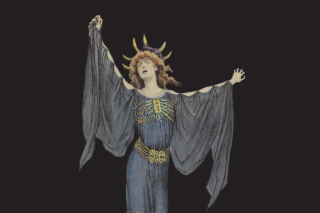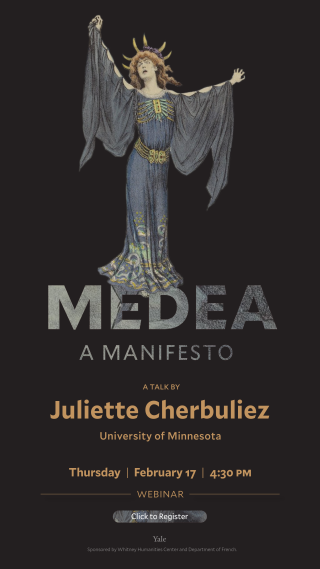Medea: A Manifesto

Despite the propensity by philosophers and political theorists for mining Greek tragedy in search of models of effective moral action, few have explored Medea as a salutary icon of positive action. In this talk, I explore why we should be thinking about Medea and taking her as a model—if not for positive action, then perhaps for politics itself. Offering a contrast between this aging witchy mother and Antigone, a young virgin with no occult power, I will explore Medea as an icon of epistemological alterity, draw out the role of French classical tragedy in shaping her as such, and suggest some reasons why we should linger with her today, perhaps more than ever.
Juliette Cherbuliez is the Director of the Center for Premodern Studies and a professor of French at the University of Minnesota. A comparatist, she has published on the materiality and politics of women's writing in early modern France, tragedy, violence, and visual culture. Her most recent book is In the Wake of Medea: Tragedy and the Arts of Destruction in Neoclassical France (Fordham 2020). She is currently working on a study of the narratives shaping the violence of Jacques Callot's print practice during the Thirty Years War.
Moderated by Alice Kaplan, Sterling Professor of French and Director of the Whitney Humanities Center
Sponsored by Whitney Humanities Center and Department of French
